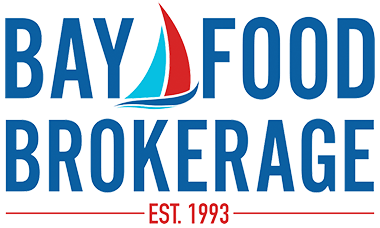
Are you ready for hurricane season?
June 1 marked the official start of the Atlantic hurricane season. This year, experts predict a “hyperactive” season. In fact, researchers at Colorado State University forecasted that we will have 23 named storms, 11 hurricanes and five major hurricanes.
Naturally, this is alarming for residents of states surrounded by water – like Florida – and regions along the Atlantic Ocean and Gulf of Mexico coastlines. However, it’s important to remember that hurricanes can severely impact inland cities and states, as well. While hurricanes make landfall in a coastal area, their path of destruction can travel long distances.
For that reason, it’s important that all Southeastern states prepare for hurricane season. This includes major retailers, like supermarkets, that supply the essentials for residents’ emergency kits.
Why Retailers Need to Be Ready for Major Storms
 One of the most recent devastating storms to hit the Southeast U.S. was Hurricane Ian in September 22.
One of the most recent devastating storms to hit the Southeast U.S. was Hurricane Ian in September 22.
The storm caused catastrophic damage and power outages in many markets after it made landfall in Florida. Telecommunications systems were spotty at best, and damaged roads made it difficult for trucks carrying emergency supplies to reach impacted areas. Breakdowns in the supply chain led to empty grocery store shelves throughout the state, especially in the most at-risk and affected regions.
In addition, residents panic-buying essential supplies as a named storm is approaching leads to empty shelves. Often, many residents are challenged or unable to find survival supplies like water and canned food.
Therefore, it’s important that every Southeast food retailer is prepared for major storms at the start of hurricane season.
Here are a few tips from Bay Food Brokerage’s Executive Vice President Chris Chatterton for how retailers can be storm-ready.
Make hurricane kits easy to assemble
In disaster-prone areas, shoppers are likely assembling or refreshing their hurricane kits. As we’re based in Florida, our company and our individual team members understand the importance of preparing in advance.
Government officials urge residents to stock up on essential items. Due to frequent power outages during major storms, officials advise purchasing shelf-stable foods. These include jerkies, crackers, canned food, baby food and bottled water. Additionally, residents should buy non-food items like batteries, can openers and disposable table settings.
“Retailers should maintain ample inventory of typical hurricane season items,” Chris said. “And, making these products easy to find in the store is also crucial.”
Retailers can streamline customers’ hurricane preparation by organizing their stores effectively. This might involve setting up specialized displays or creating product clusters featuring hurricane kit items.
Grouping items such as water filters, feminine products and matches can facilitate a smoother shopping experience during stressful times. It can also help increase sales by triggering ideas in shoppers’ minds about products they need but otherwise may not have thought of.
Prepare for panic-buying and supply chain challenges
As a Southeast food broker, we witness first-hand how retailers often run out of hurricane kit items as storms approach.
“When a storm is imminent, people panic-buy and over-shop,” Chris said. “Manufacturers and retailers must prepare for this in advance.”
After storms, power outages and infrastructure damage cause additional supply chain challenges, affecting inventory levels.
“If manufacturers can’t deliver trucks to retailers’ warehouses on schedule, restocking becomes difficult,” Chris said.
Chris suggests that manufacturers develop a hurricane preparedness plan. This plan should address handling larger orders or providing early deliveries to retailers preparing for a storm.
“Flexibility in logistics is crucial,” Chris said. “Quick reactions and flexibility with retail partners help before and after storms.”
Rely on your food broker for guidance and assistance
An experienced Southeast food broker, like Bay Food, understands local needs and shopping patterns. This expertise is valuable for manufacturers unfamiliar with storm impacts, and ultimately affects what retailers are able to stock for their customers.
“Our company, headquartered in Tampa Bay, knows hurricanes and their community impact,” Chris said. “We support manufacturers and retailers in providing essential goods to residents during these trying times.”
Bay Food Brokerage helps with communication and coordination between manufacturers and retail partners before and after major storms. This includes helping to track, maintain and move inventory.
A reliable grocery broker partner also assists with logistics, such as identifying alternative transportation or rerouting distributors to avoid road bottlenecks.
Hurricane season is unpredictable. However, the right broker can support clients and retailers with advice, data and experience. The earlier and more effectively retailers can prepare for the impacts of a major storm, the better served their communities will be.
For a Southeast food broker who understands hurricane season and its challenges, contact us today to see how we can help.
